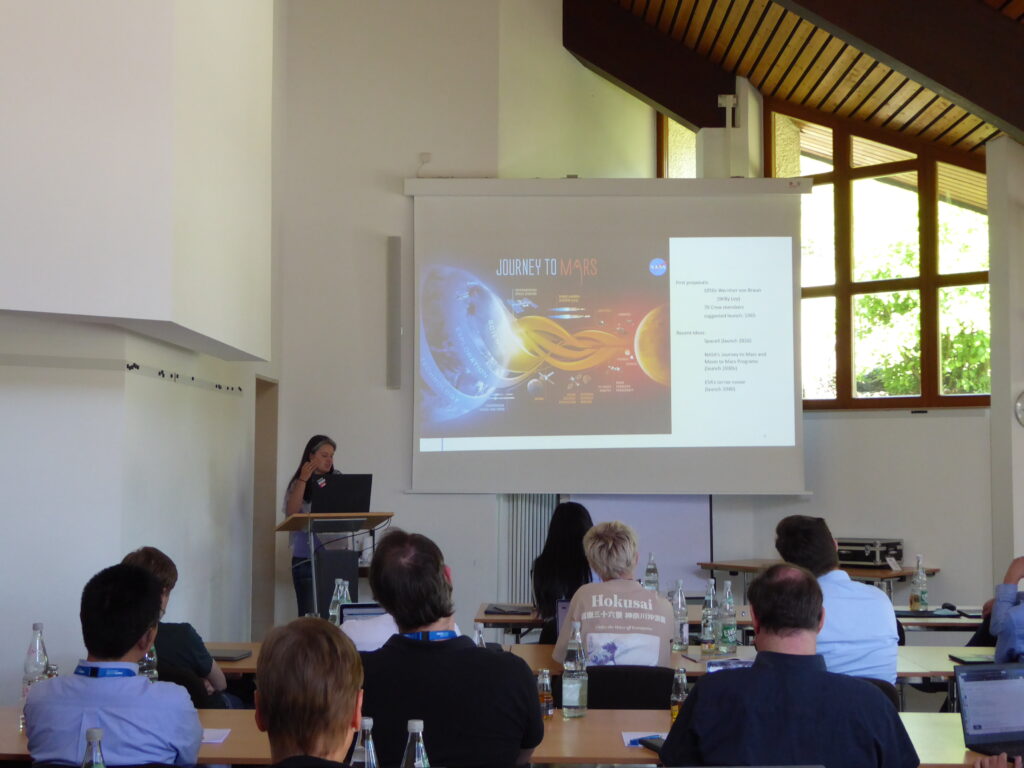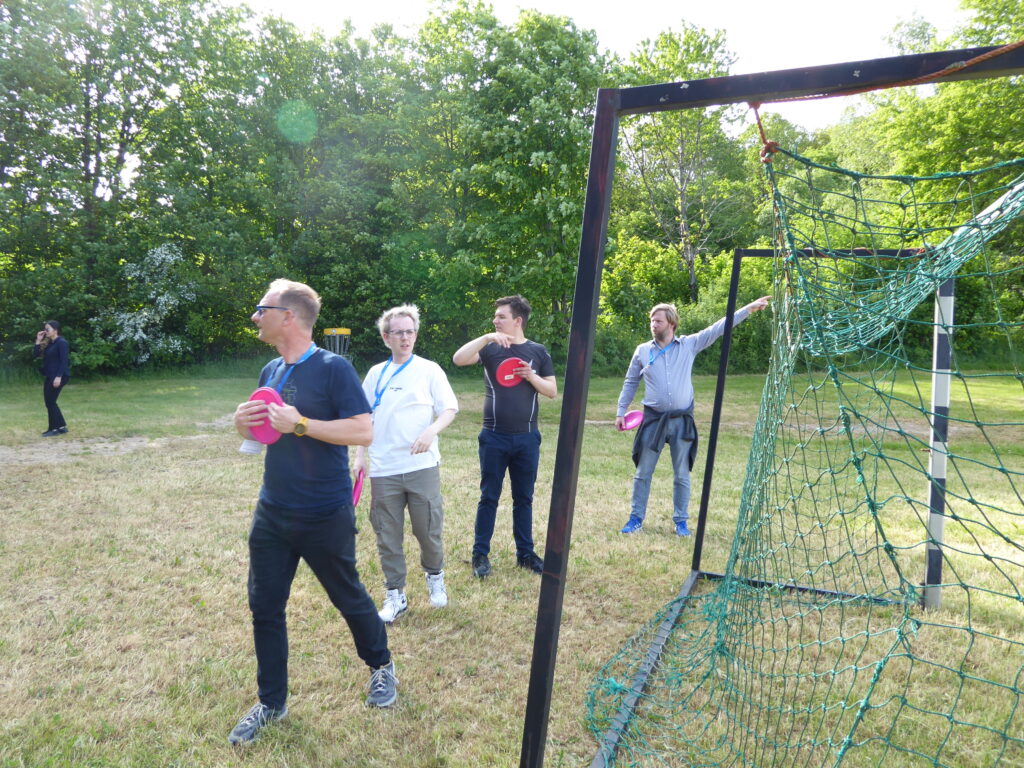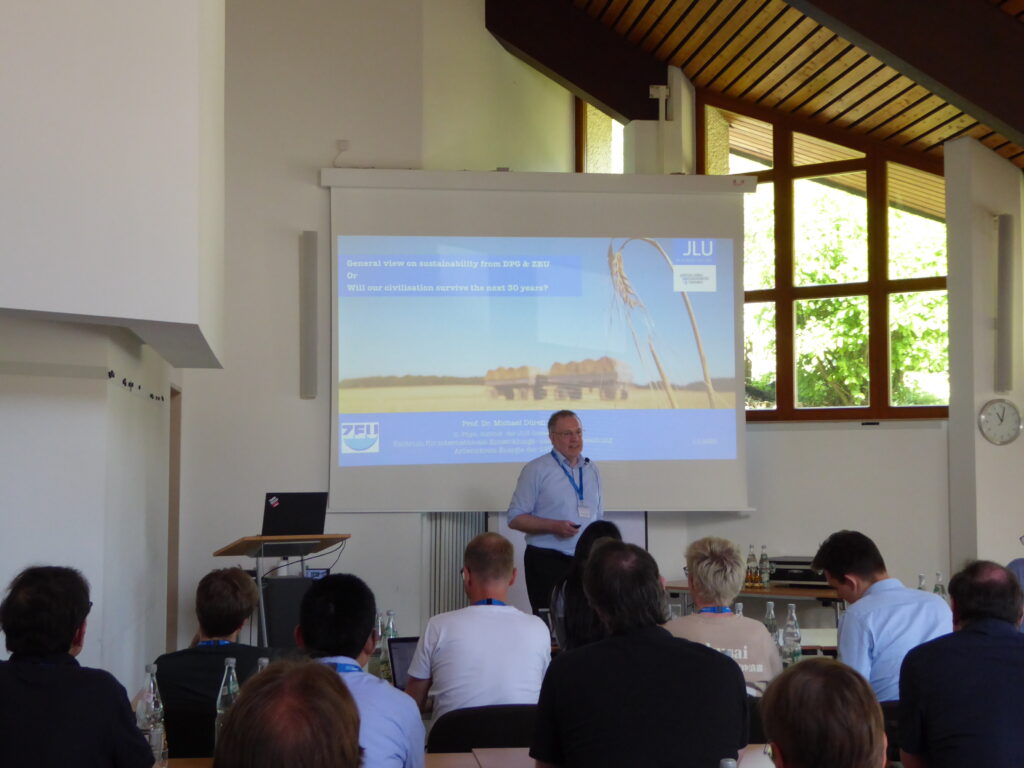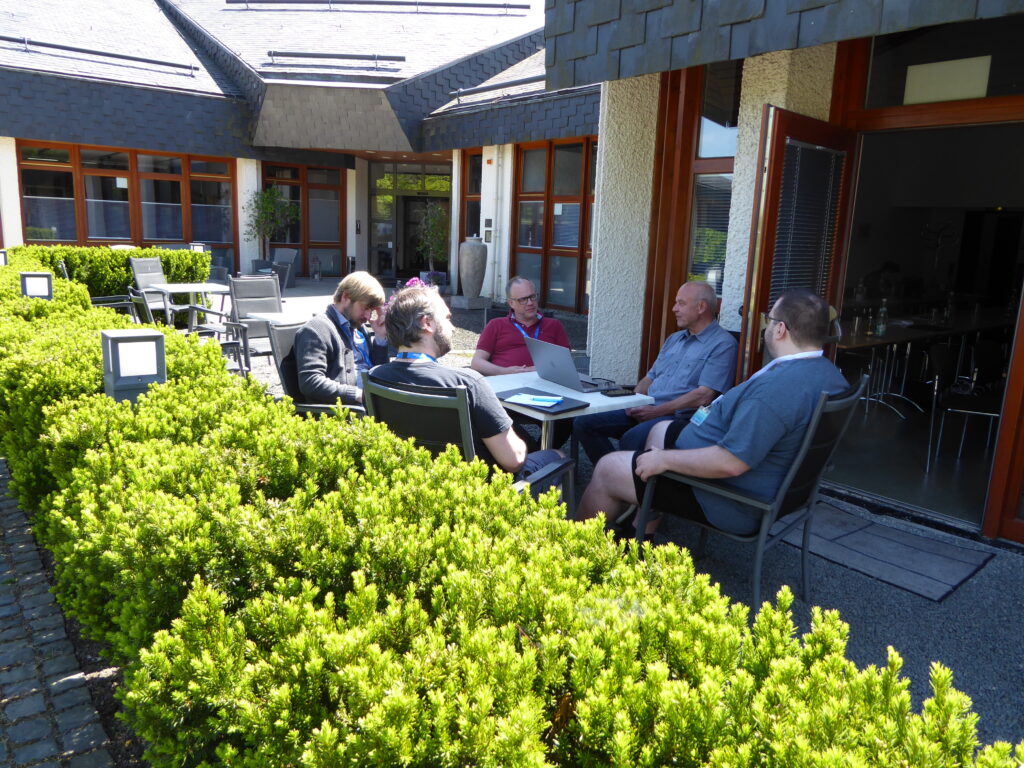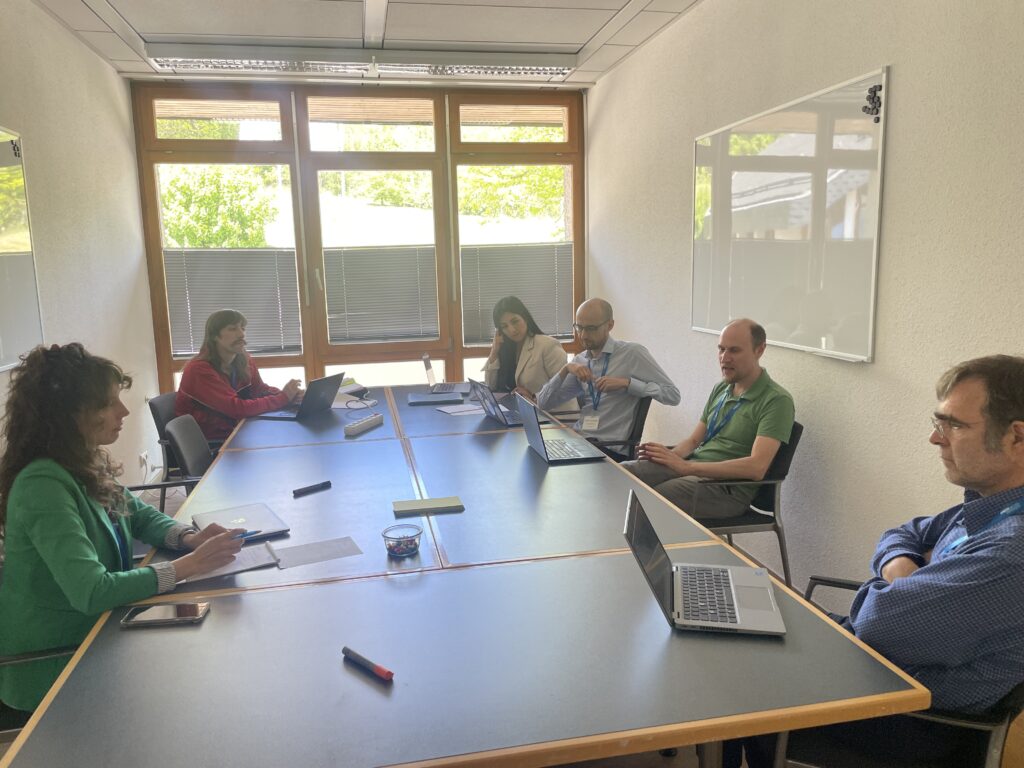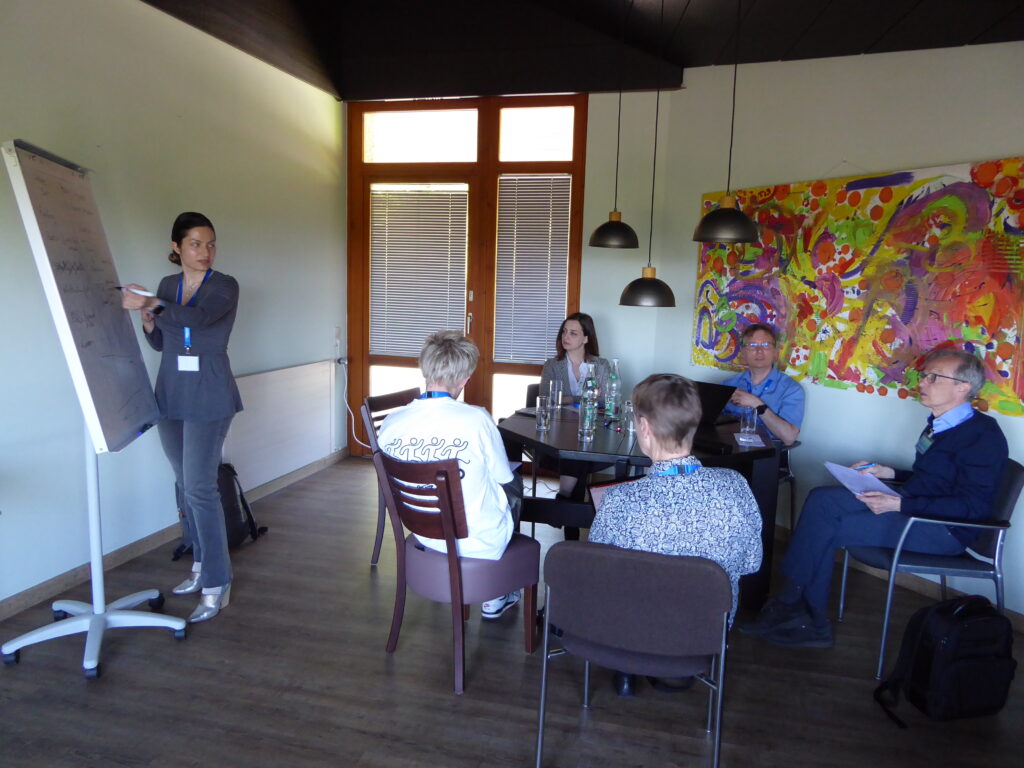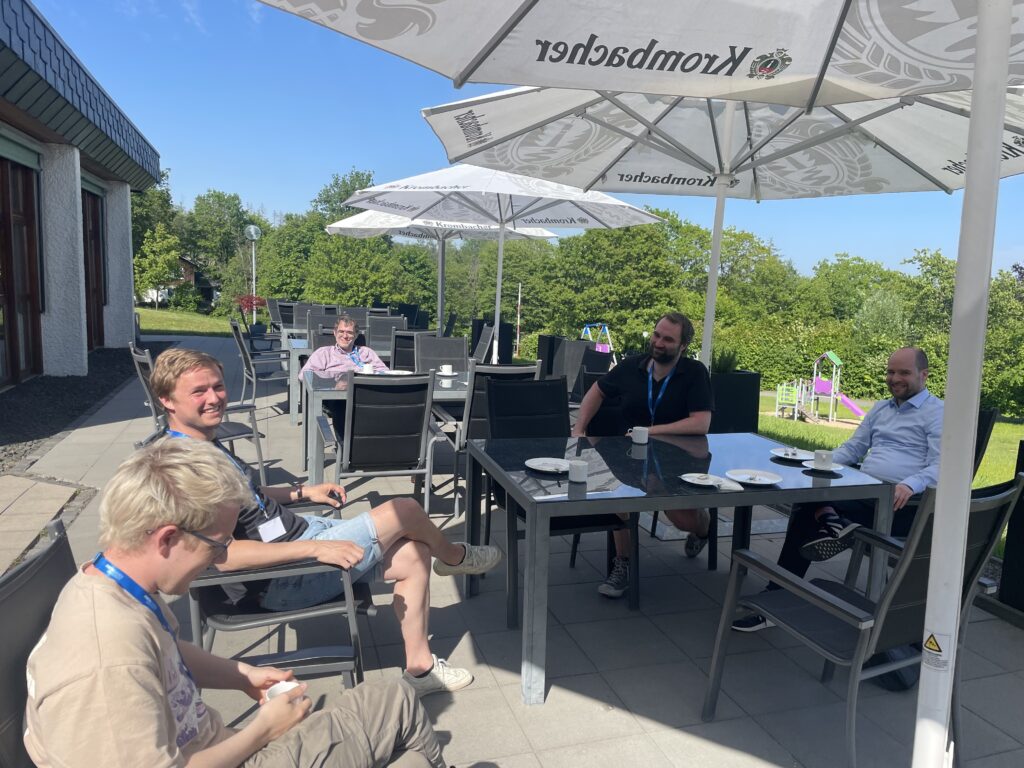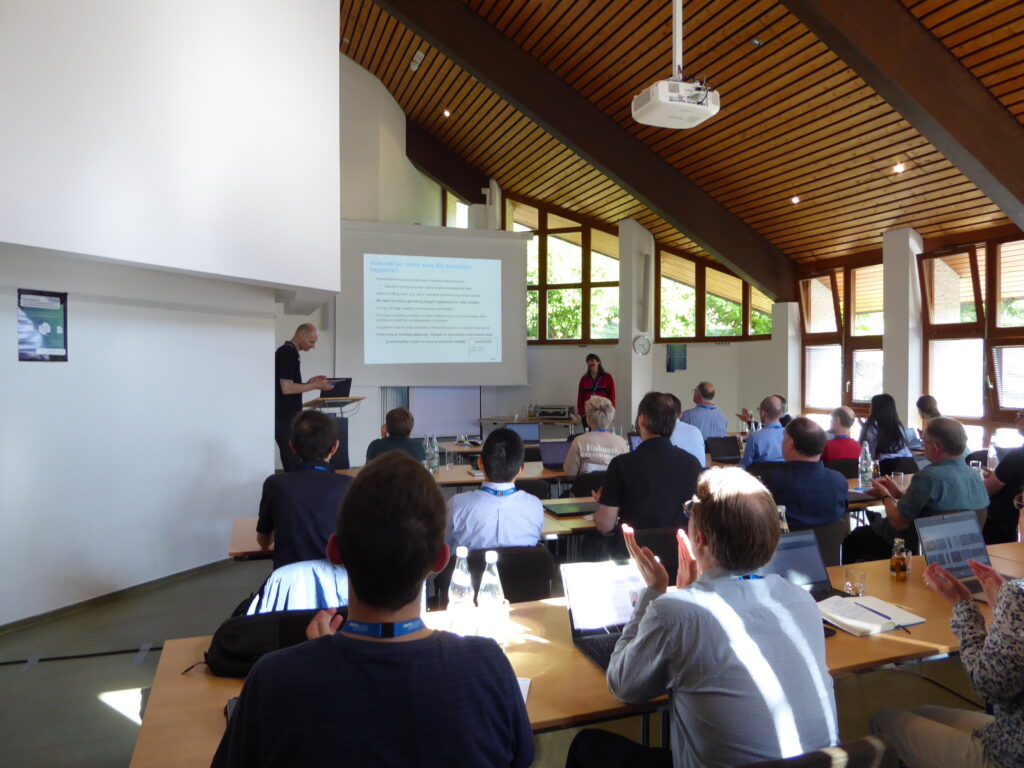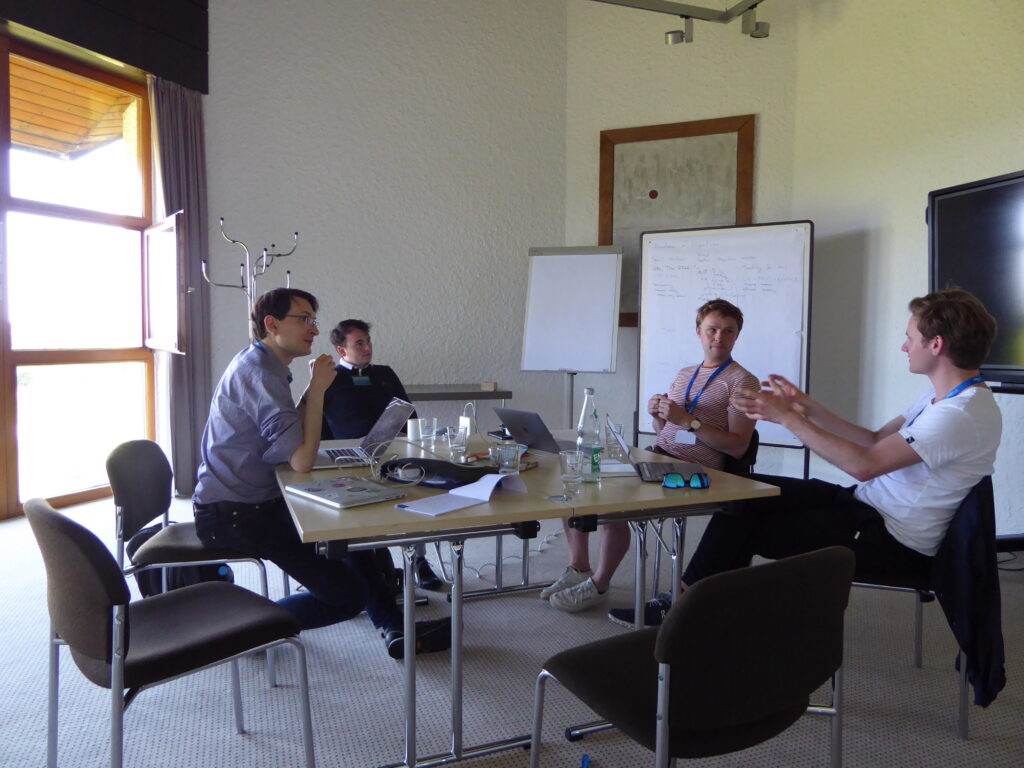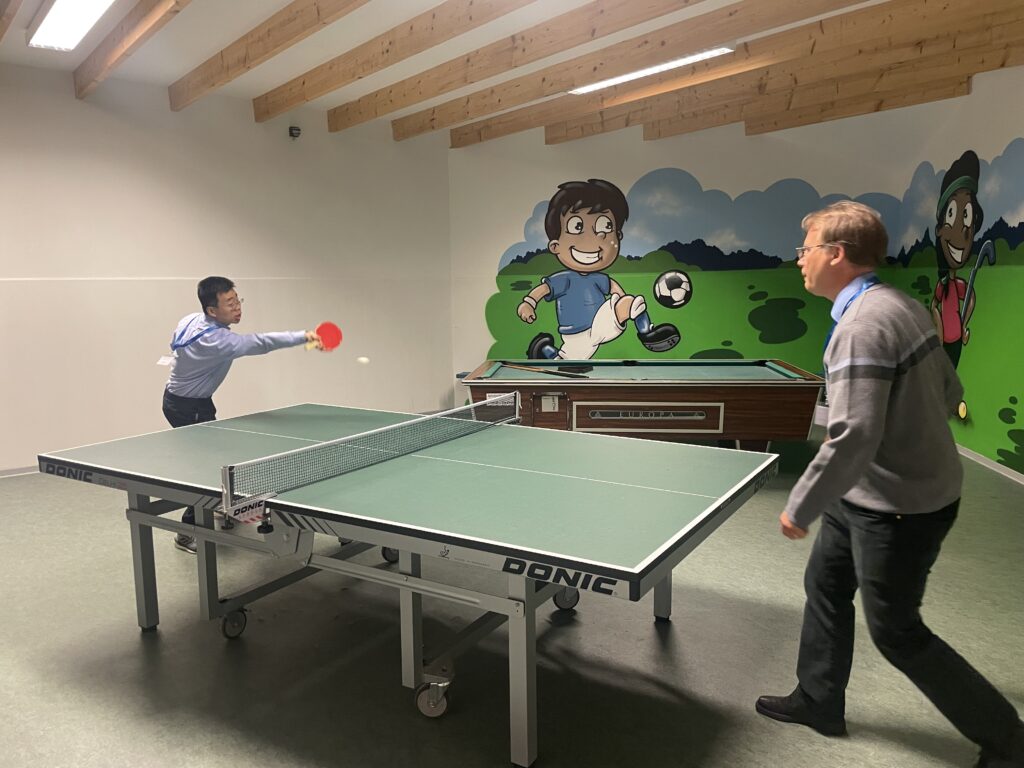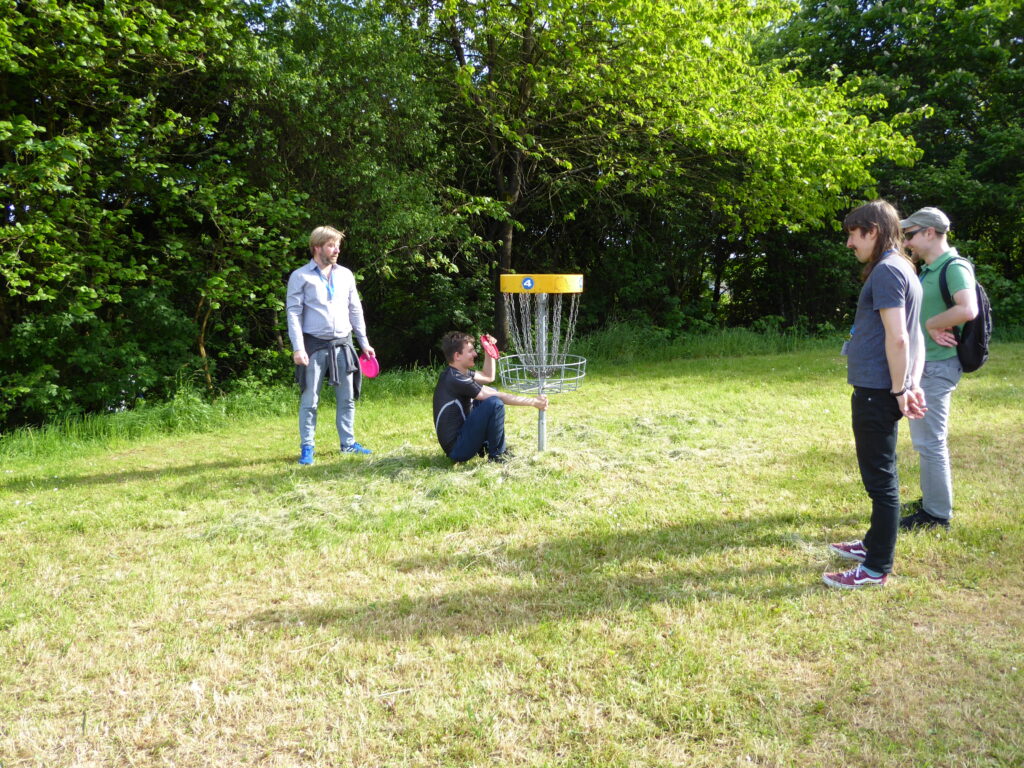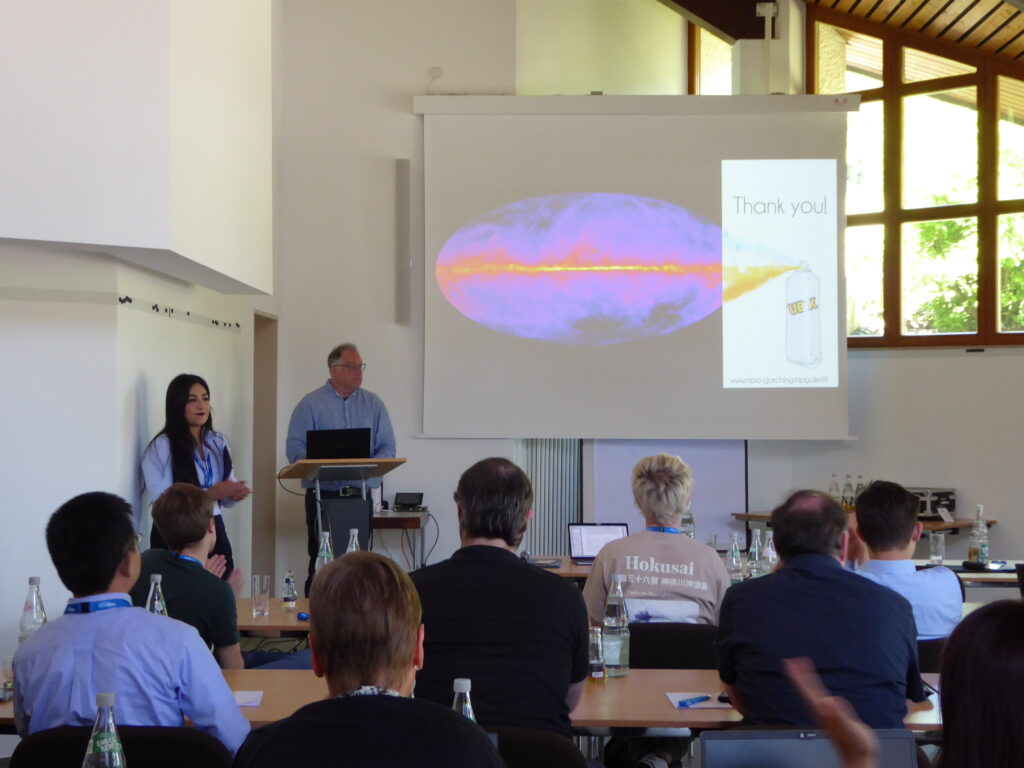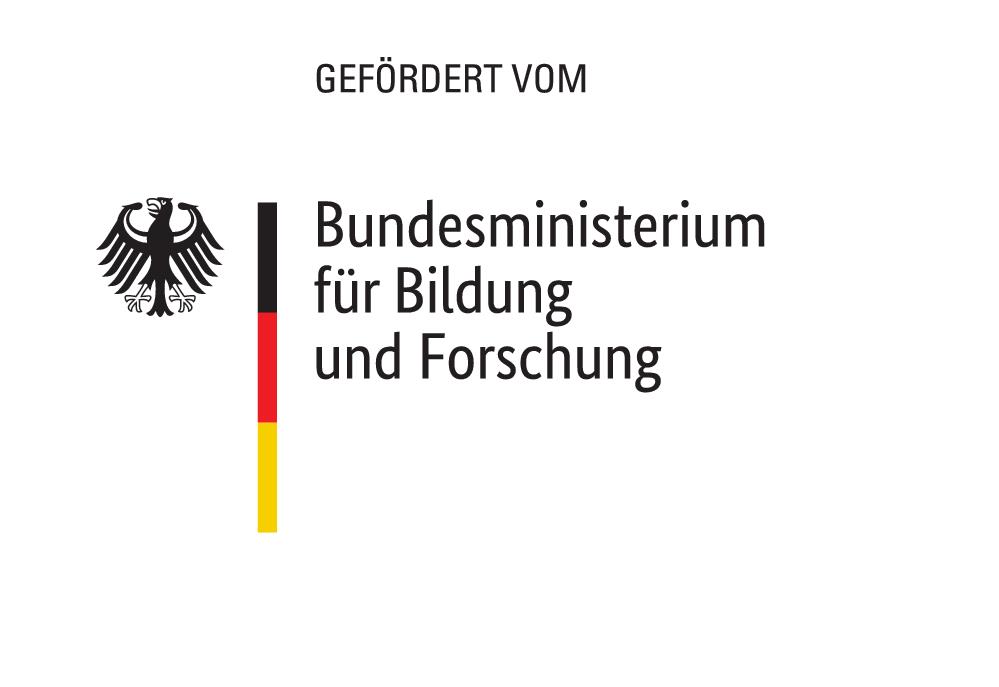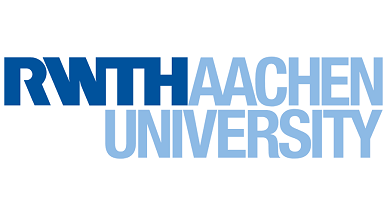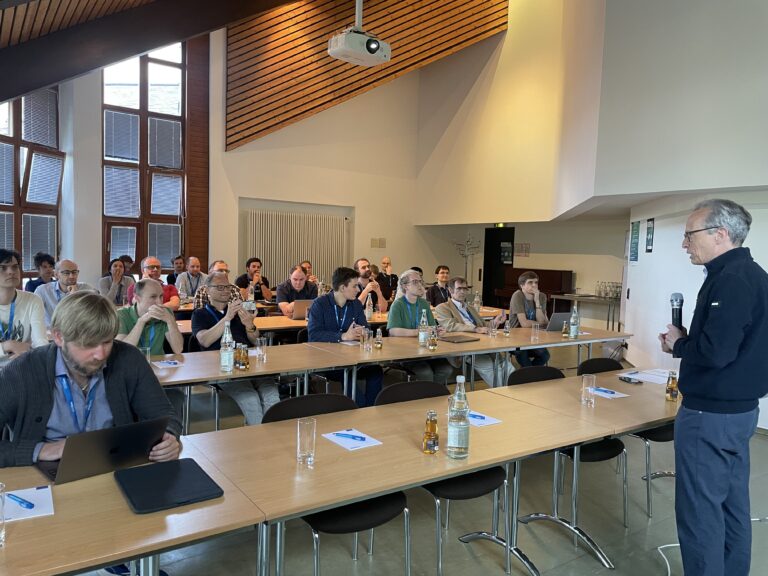
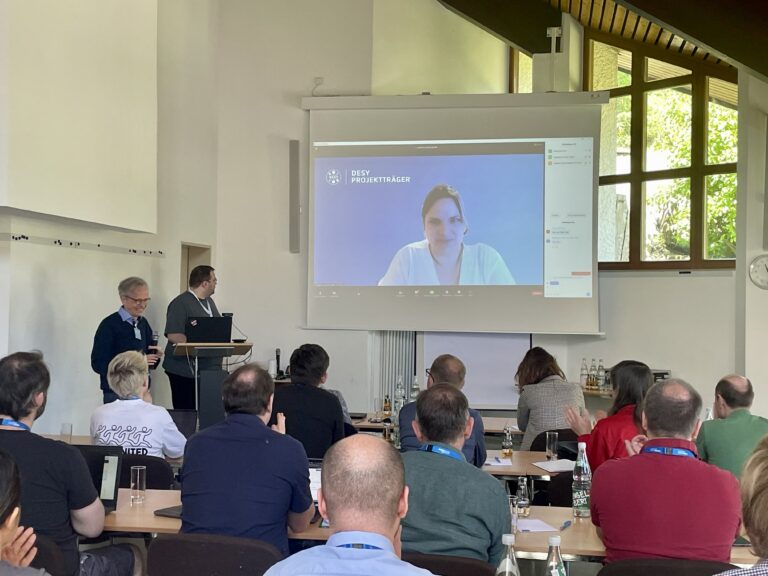
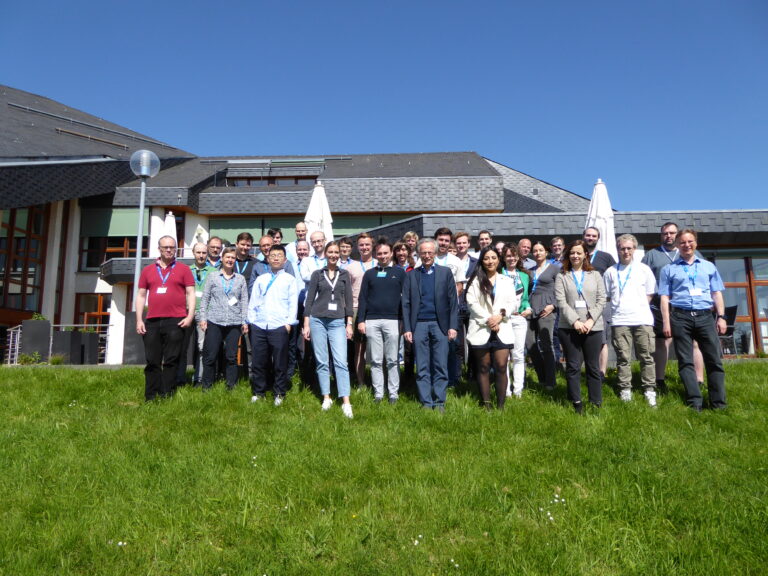
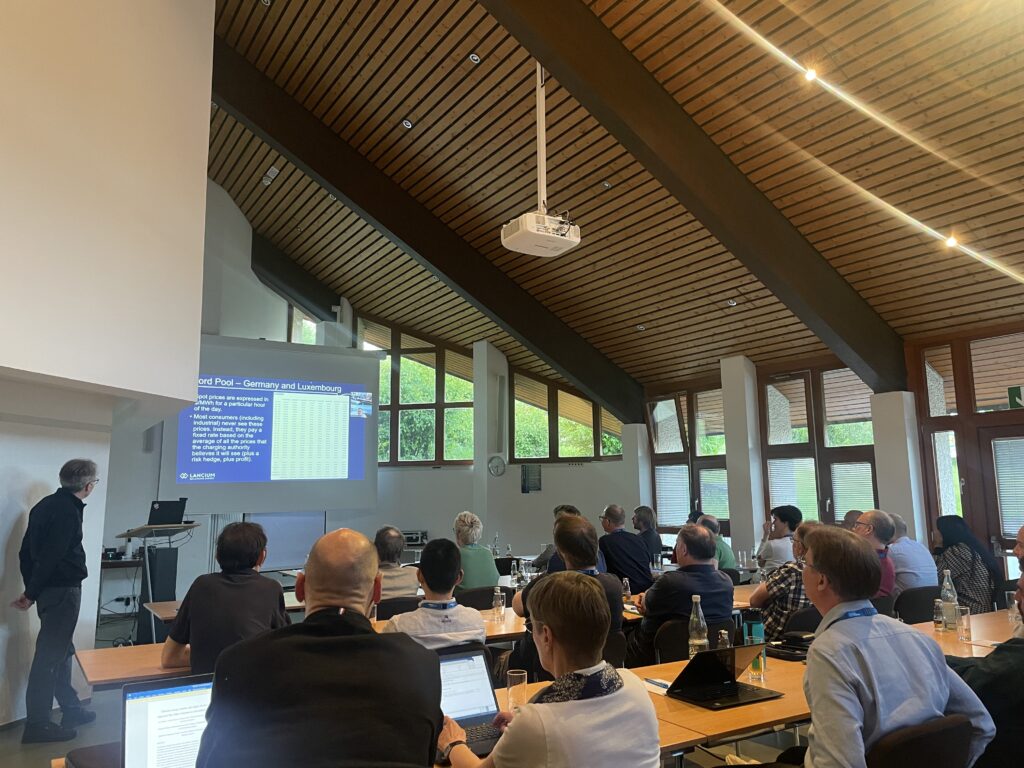
Review
Sustainability in the Digital Transformation of Basic Reserach on Universe & Matter
A review to our ErUM-Data-Hub "Expert Workshop"
After a first dinner together and the welcoming by the ErUm-Data-Hub team around Professor Martin Erdmann (RWTH Aachen University), the participants listened to the lecture of Prof. Andrew Grimshaw (University of Virigina) on Tuesday evening, who gave the technical starting signal for the workshop with the topic "Concrete Actions to Sustainable Computing".
Wednesday was all about "Hardware and Research Data". After breakfast, three exciting talks on the topic were on the agenda: Rodney Walker (LMU Munich) started with his talk "Measures for sustainable computing operation", followed by Dr. Özlem Ozkan (Helmholtz Berlin) with "Sustainability of Research Data Management" and Dr. Jens Struckmeier (Cloud&Heat) with "Building Sustainable Systems - Sustainable Datacenter".
After a coffee break, there was another highlight for the participants. With the talk "Sustainability in Research at Large Research Infrastructures: Recource Efficiency & Securing the Future" Dr. Salome Shokri-Kuehni (DESY) presented the views and the program of measures on the topic of sustainability of the Federal Ministry of Research and Education (BMBF).
The new input gained in the morning created a good basis for the subsequent group work phase. Six groups came together on the topic of "Hardware & Research Data": (1) Footprint, (2) [Dynamic] Energy Supply, (3) Hardware Lifetime, (4) Hardware & Algorithms, (5) Smart Data and (6) Cultural Change. The fact that knowledge from seven different ErUM communities (KAT, KET, KfB, KFS, KFN, KFSI and KHuK) was incorporated into the group work made the discussions particularly enriching.
The participants used the rest of the day for group activities together in the sunshine and continued to exchange.
Thursday morning started with the group presentations. In six exciting presentations, the groups presented the ideas and results they had worked on the day before, thus concluding the topic "Hardware & Research Data".
The focus was then on the second main topic of the workshop: „Algorithms & Mindset“. Four presentations on the topic provided new, inspiring input: Prof. Michael Düren (University of Giessen) kicked things off with his thought-provoking presentation on "General view on sustainability from DPG & ZEU or will our civilisation survive the next 30 years?" Followed by exciting talks by Prof. Judith Reindl (Universität der Bundeswehr München) with "AI or Human? Mars colony as extreme example", Torsten Enßlin (MPI for Astrophysics) with "Information field theory for knowledge driven inference systems" and Lukas Geiger (Plumerai) with "Efficient Neural Networks - Towards sustainable neural network training and inference".
After that, the participants went into another group work phase. Divided into six groups working in parallel, the participants developed strategic concepts on the topics (7) Autonomization, (8) Inquiries & Dynamics, (9) Algorithms & Software, (10) Machine Models, (11) Injected Intelligence, and (12) Workflow & Stakeholders until Thursday evening.
Friday was the last workshop day, which started with the group presentations on "Algorithms & Mindset". Once again, the participants were able to listen to and discuss six enriching presentations. Afterwards, Thomas Kuhr (LMU Munich) gave a presentation on "CONVIEN: Meeting Place Finder".
At the end of the workshop, Prof. Martin Erdmann from the ErUM-Data-Hub (RWTH Aachen University) summarized once more the presentations of the key note speakers as well as the ideas, concepts and strategies developed in the groups and presented a first rough draft for a collaborative paper to be published in the journal "Computing and Software for Big Science" (CSBS). Together, this proposal was lively discussed and optimized. In the coming weeks, the researchers will now continue their collaboration beyond the workshop and finalize the paper.
We would like to thank all speakers for their valuable input and all participants for their exciting contributions to the success of the workshop. We would also like to thank the BMBF for its financial support.

